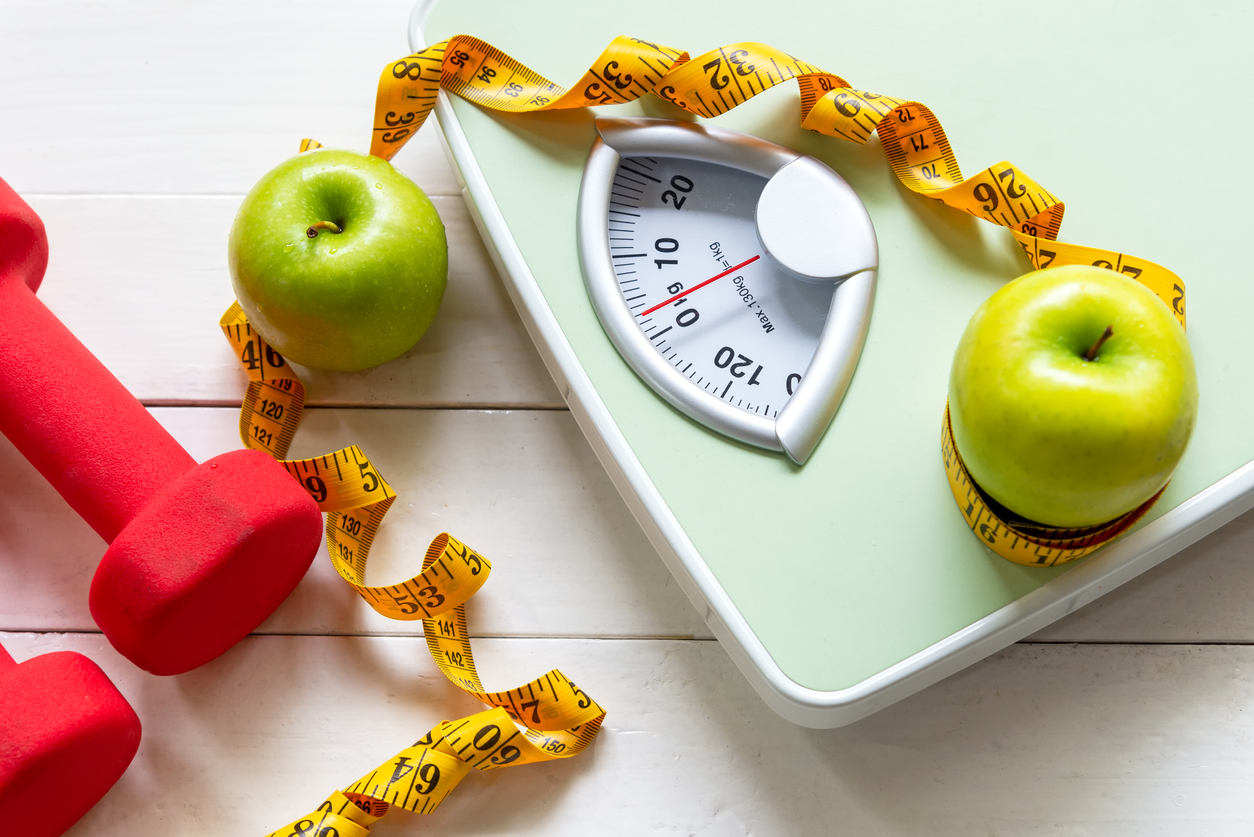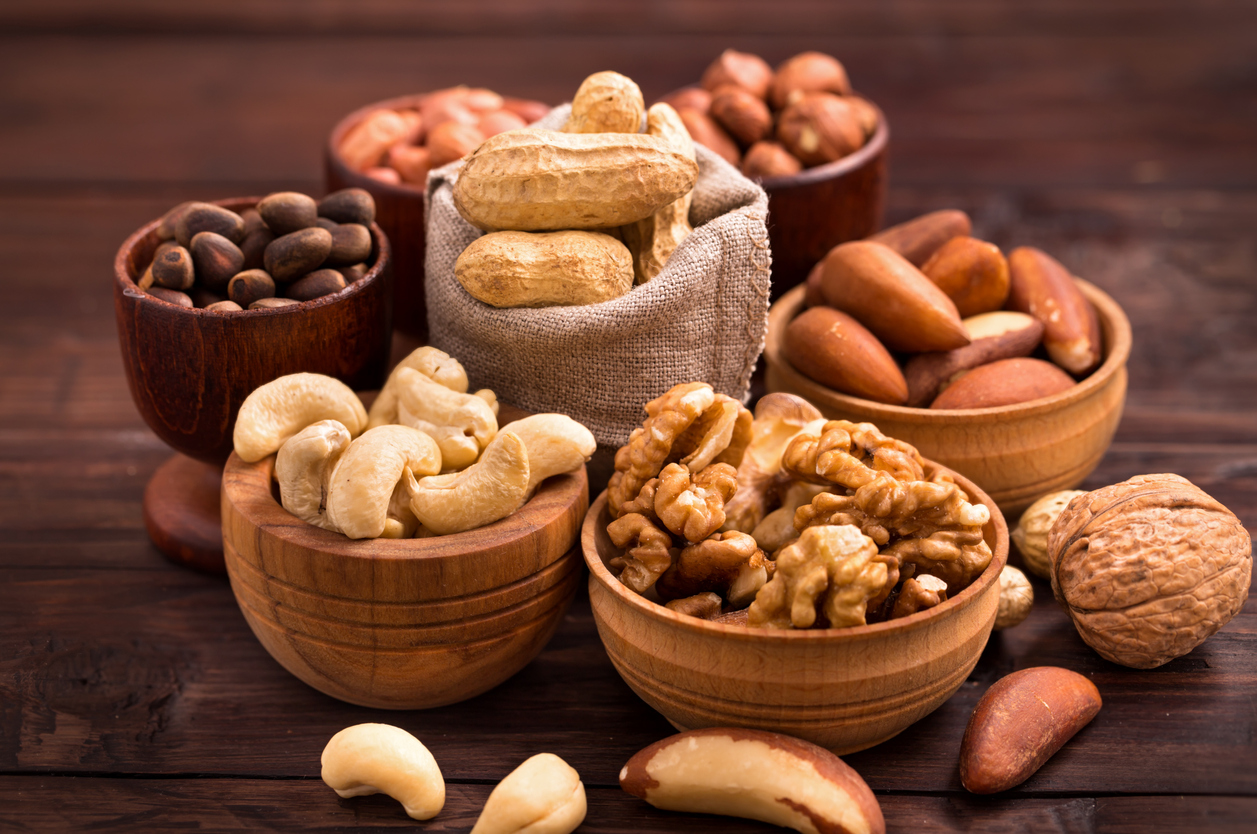
Have you heard about the Therapeutic Lifestyle Changes diet? Basically, it was created by the National Cholesterol Education program to help lower a person's cholesterol. It isn't a fad diet and it's based on science. According to the Centers for Disease Control and Prevention, "TLC is an effective lifestyle therapy targeting low density lipoprotein cholesterol (LDL), a risk factor for coronary heart disease." But the benefits don't stop there. In addition to helping lower LDL, the bad cholesterol, TLC also "improves risk factors associated with the metabolic syndrome and diabetes, including blood pressure, high-density lipoprotein cholesterol (HDL), serum triglycerides, blood glucose, and weight status."
More from MamásLatinas: Foods that boost the metabolism
When you break it down, the TLC diet is more of a lifestyle modification plan than a diet because it's not just about what you eat. It's also not something that you do for a couple of weeks to drop 10 pounds. It's more of a commitment to your long-term health. The goal of this "diet" isn't to fit into your skinny jeans, although that might happen. The goal is to eat well, manage weight, and exercise so you can be healthy and prevent coronary heart disease. Sounds good, right? Let's break it down further so you can decide if it's something that would be beneficial to you.
What is the Therapeutic Lifestyle diet?

The Therapeutic Lifestyle Changes diet was created by the National Institutes of Health's National Cholesterol Education Program. The main goal of the diet, which is really more than a diet because it incorporates lifestyle changes, is to help cut cholesterol and lower the risk of cardiovascular disease.
The TLC diet can be broken down into three main parts.

The components are: diet, exercise, and weight management. If you follow the TLC diet, you could see some weight loss, your LDL (bad cholesterol) levels can decrease, your HDL (good cholesterol) levels can increase, and your triglycerides (a fat type in your blood) can decrease. That's all good stuff and good for your long-term health.
How does it improve heart health?

We're not doctors here, but basically, the TLC diet recommends healthy lifestyle changes that do your heart good. Changes like keeping your dietary cholesterol below 200 milligrams a day and reducing your saturated fat intake to less that 7% of your total calories.
What are some of the specific dietary recommendations to lower LDL?

To reduce your intake of saturated fat and thereby reduce your LDL, the TLC diet recommends that you choose lean meats and low-fat dairy products. It also recommends no more than three whole egges with yolks a week.
Other dietary changes might require you to add certain foods to your diet.

It's recommended that you increase your consumption of whole grains to 50% of the grains you eat to help lower LDL. Eating fish two to three times a week is also suggested because it helps lower triglycerides and increases HDL. Eating foods that contain plant sterols or stanols is also encouraged because those substances help lower LDL.
What specific foods are recommended?

Recommended foods include whole grains, fruits, veggies, fish, beans, lentils, oatmeal, whole-grain rice, and foods rich in mono and polyunsaturated fats. Basically, you have a lot of options to choose from.
What kind of foods rich in monosaturated fats are recommended?

You can have avocados, nut butters with no added trans fat, nuts, and seeds. In terms of oils, you can use canola, olive, and peanut oils. Again, you have a lot of options to choose from.
What kinds of polyunsaturated fats can you eat on this diet?

Recommended polyunsaturated fat sources include salmon, tuna, halibut, mackerel, pine nuts, walnuts, flaxseeds, pumpkin and sunflower seeds, as well as sesame seeds. Oils you can use include grape seed oil, safflower oil, and sunflower oil.
You will want to decrease your intake of saturated fats.

It is recommended that you limit your intake of saturated fats to no more than twice a week. Saturated fats can be found in bacon, butter, coconut, coconut milk, cream, cream cheese, sour cream, shortening, and lard. Oils you want to avoid include coconut, palm, and palm kernel.
Can the TLC diet help you lose weight?

If you want to lose weight on this diet the National Heart, Lung, and Blood Institute recommends decreasing your calorie intake by 500 to 1,000 calories a day, which should result in a loss of 1 to 2 pounds per week.
How much exercise is recommended?

To reduce the risk of chronic disease, it's recommended that adults "engage in at least 30 minutes of moderate-intensity physical activity, above usual activity, at work or home on most days of the week." That's the bare minimum recommended.
What other lifestyle modifications need to be made?

It's recommended that you learn the difference between physical fullness and satiety. Physical fullness happens when you pretty much feel stuffed after eating and that most likely means you ate too much. Satiety happens when your body sends a message to your brain saying that it's had enough to eat before getting to the point of feeling like your belly is distended.
Is it expensive to follow the TLC diet?

No, it doesn't have to be. You don't have to buy any specialized foods or products. You're just spending money on recommended foods. As for exercise, you don't have to join a gym or anything. How you get your exercise is up to you.
Is it an easy diet to follow?

If you are looking for a quick fix, this isn't it. The TLC diet requires that you make changes not just in what you eat, but also how you exercise. These changes aren't meant to be temporary either.
How do I get started on the TLC diet?

Start by talking to your doctor about the diet. You can both decide if it's a good option for you and your doctor can provide you with more information and may even recommend you work with a nutritionist.

